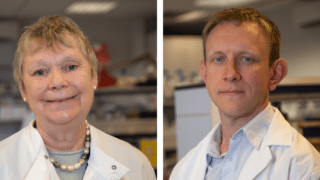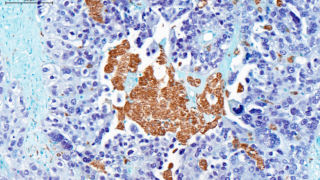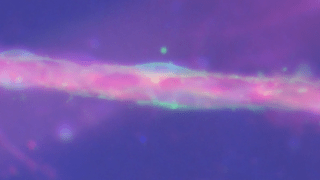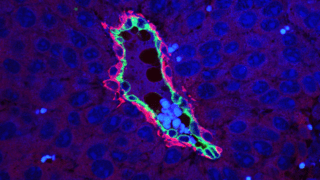Tag: Microenvironment
Search News
Categories
Archives
Building a human tumour microenvironment in the lab
15th June 2021
Researchers from Barts Cancer Institute at Queen Mary University of London, led by Professor Fran Balkwill and Dr Oliver Pearce, have built two 3D multi-cellular models of the human tumour microenvironment (TME) in ovarian cancer. The models, which are the first created from the CanBuild project, have revealed novel insights into the role of the TME in cancer progression.
Read moreImpact of chemotherapy on immune cells in the TME
10th April 2021
Research from Barts Cancer Institute, Queen Mary University of London, has revealed novel insights into the effects of chemotherapy on the tumour microenvironment (TME). The study found that chemotherapy enhances the anti-tumour actions of immune cells within the TME and their ability to support immune responses against cancer.
Read moreBlood vessel protein has protective role in cancer
4th June 2020
A study has identified a novel mechanism that controls tumour growth, involving a particular protein expressed by specialised cells within tumour blood vessels.
Read morePericytes and control of cancer growth
29th May 2020
New study reveals novel insights into the role of blood vessels within the tumour microenvironment in the regulation of cancer growth. Understanding this relationship better may provide new avenues that can be explored for cancer therapies.
Read moreThe TME: Key to controlling cancer cell growth
10th March 2020
The tumour microenvironment: Key to controlling cancer cell growth Research led by Barts Cancer Institute (BCI), Queen Mary University of London, reveals novel insights into the role of the tumour […]
Read moreNew research funded by PCRF
19th July 2019
The Pancreatic Cancer Research Fund is supporting two new research projects at the Barts Cancer Institute, Queen Mary University of London. The projects, led by Professor Hemant Kocher and Dr Gunnel Halldén, will aim to identify ways to enhance the efficacy of treatments for pancreatic cancer, to ultimately help those affected by this devastating disease.
Read more





